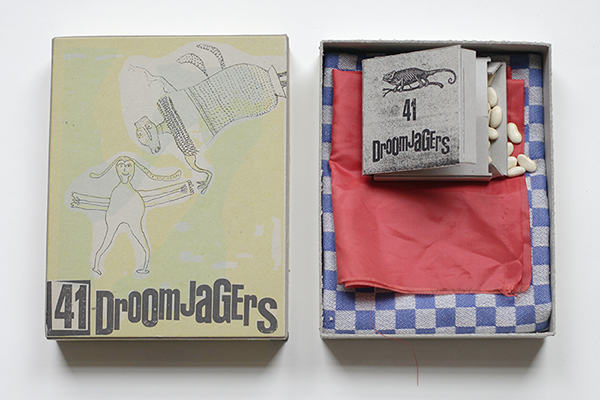 Divination game, 1997
Divination game, 1997 |
 Divination game, 2003 Divination game, 2003 |
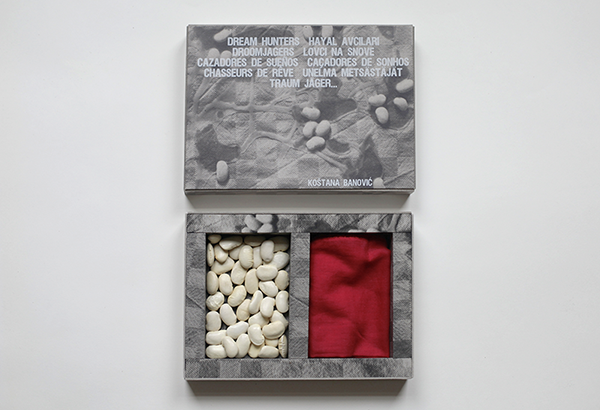 Divination game, 2012
Divination game, 2012 |
A search for (lost) identity, coming back to the country of my birth and taking leave at the same time. I undergo two currently practiced rituals, both part of the everyday life in Serbia, a baptism and fortune telling.
In Banović first film, Dream Hunters, she returns to Serbia after ten years of largely enforced absence. There, she participates in a number of traditional, still frequently performed, rituals.
Undergoing ritual is more often used as a means of communication, of coming into contact not only with her country of origin but, by extension, with the 'Other' in herself. Because, as Russell also states: "If for Benjamin the Other was the proletariat, in postmodern culture it is, (…), the cultural other. But for many filmmakers, this cultural other is "within" – within themselves, their families, their communities and nations. In the exhibition catalogue Transformers Ralph Rugoff describes a theory relating to identity that is widely adhered to by postmodern theoreticians, in which the individual is seen as a "being who is centerless and divided, a compilation of partial identities where disparate potentials freely compete (…) But where, for example, he cites artists like Cindy Sherman and Yasumasa Morimura who seem to embrace this postmodern notion of identity wholeheartedly, Banović seems to long for an identity rooted in the past, as though she is striving to express a sort of 'purity'.
Purity is a theme that also returns in the rituals, including a baptismal ritual undergone by Banović in Dream Hunters. Were it not for the fact that this yearning demands complete surrender, rendering it a sort of blind desire, Banović' longing for purity could be branded romantic. However, the artist undermines this notion in several ways - for instance simply by imperfectly staging the amphora scene. The background clearly comprises ordinary wallpaper and Banović' piled-up hair is a little too unruly by classical standards.
By employing poetical texts in a voice-over that often references a reality never visualised, non-linear narratives and elusive symbolism, Dream Hunters apparently presents a reality that bears a direct relation to a statement by Russell about how contemporary experimental ethnology deals with visualising reality. She writes: "The real" conceived as history differs from "the real" of referentiality in that it includes the spectator and the filmmaker in its scope. Beyond the limits of representation exist other realities of experience, desire, memory, and fantasy. Indeed, the presence of Banović in the film not only plays an active role, but also acknowledges the presence of the viewer.
Scenes with voice-overs ( from later episodes )seem to be conclusive in affirming that the purification process failed to establish contact with the supernatural. In a later scene, which shows the painting of a saint, the voice-over says: "You are mute. You don't answer." As Banović herself indicates, Dream Hunters is not only a quest for a lost identity and a return; it is also a farewell.
Hilde de Bruijn
Curator Smart Project Space Amsterdam
Text by Hilde de Bruijn, Measure of Distance (publication, 2000)
 Divination game, 1997
Divination game, 1997 |
 Divination game, 2003 Divination game, 2003 |
 Divination game, 2012
Divination game, 2012 |
| (excerpt 4:30 minute) |
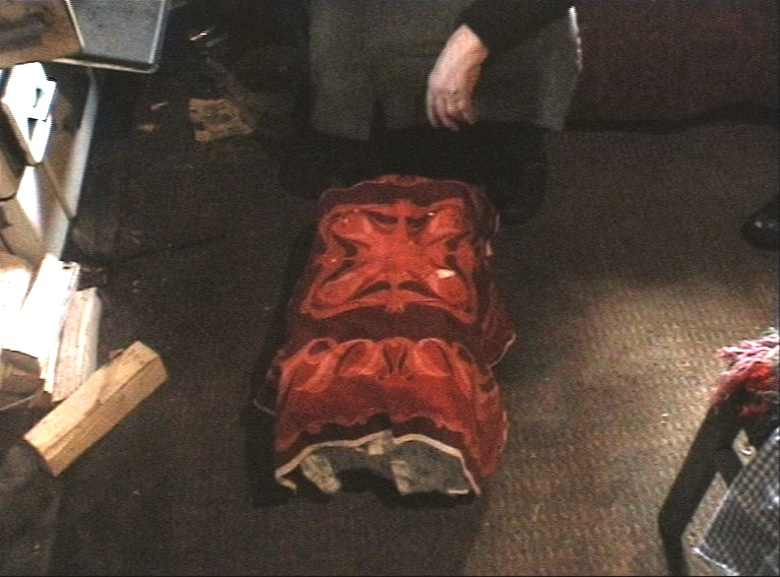 |
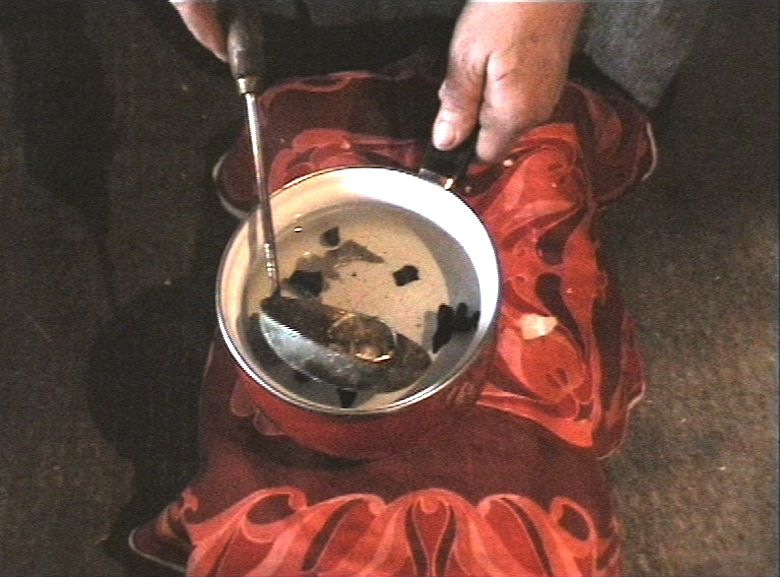 |
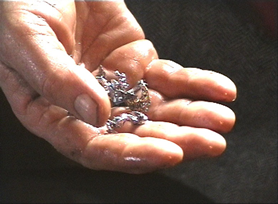 |
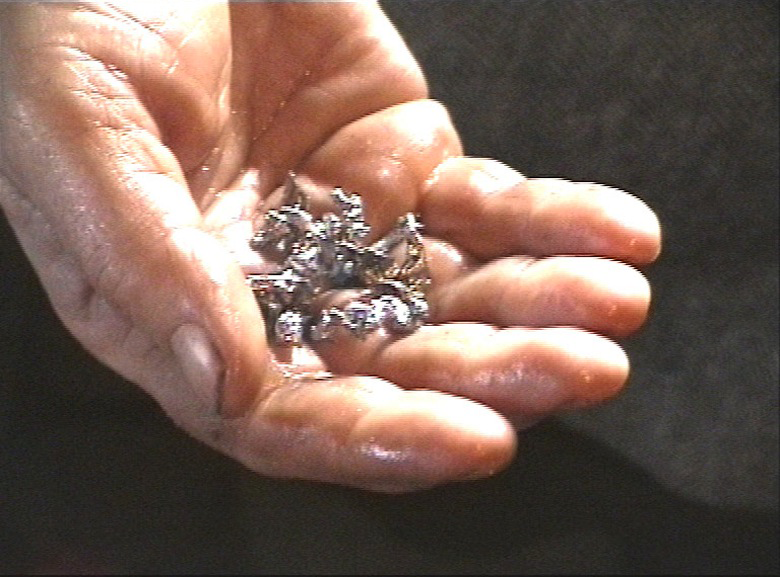 |
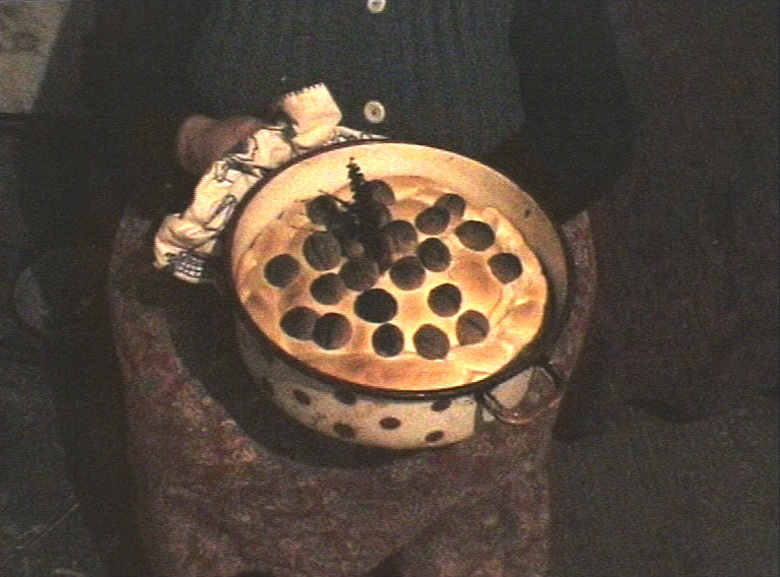 |